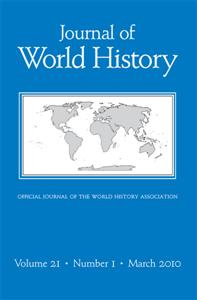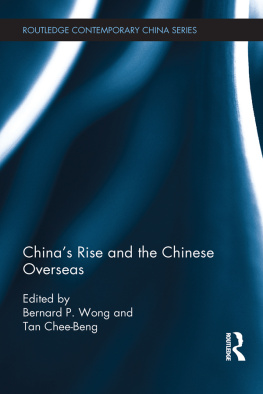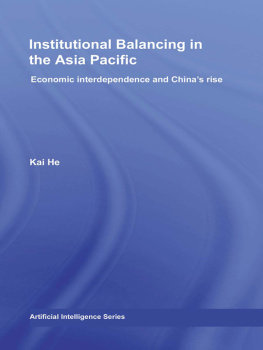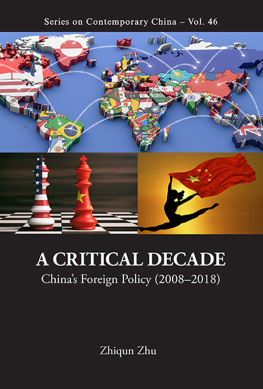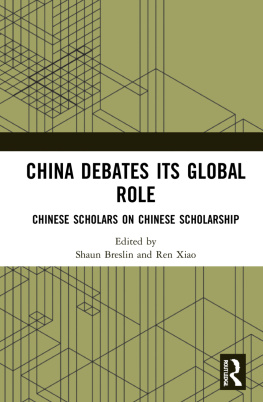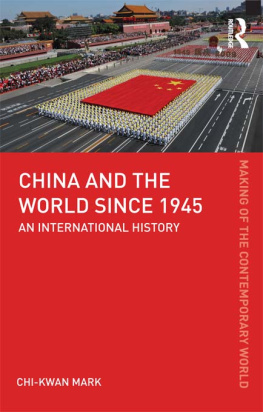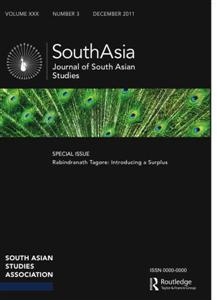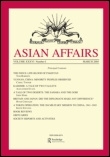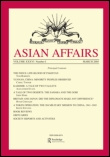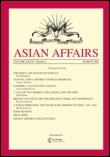What Is This Chinese in Overseas Chinese? Sojourn Work and the Place of China's Minority Nationalities in Extraterritorial Chinese-ness
Chris Vasantkumar
Abstract
This essay argues that to adequately answer the question its title poses, anthropological approaches to national and transnational China(s) must be grounded in the history of Qing imperial expansion. To this end, it compares and explores the connections between three examples of the sojourn work that has gone into making mobile, multiethnic populations abroad into Overseas Chinese. The first example deals with recent official attempts to project the People's Republic of China's multiethnic vision of Chinese-ness beyond its national borders. The second highlights the importance of the early Chinese nation-state in the making of Overseas Chinese community in Southeast Asia in the first decades of the twentieth century. The final case foregrounds the late imperial routes of nascent Chinese nationalism to argue that, in contrast to much of the current rhetoric on the Chinese diaspora, national and transnational modes of Chinese community emerged together from the ruins of the Qing empire. Together the three examples point to the need to question the usual ways scholars have conceptualized (Overseas) Chinese-ness.
The Journal of Asian Studies
- The Journal of Asian Studies (2012), 71 : pp 423-446
- Copyright The Association for Asian Studies, Inc. 2012
- DOI: http://dx.doi.org/10.1017/S0021911812000113 (About DOI) Published online: Wed May 09 00:00:00 BST 2012
Chris Vasantkumar () is Luce Junior Professor of Asian Studies and Anthropology at Hamilton College.
One afternoon in early November 2003, I was sitting in a booth at the gaily- decorated cafe attached to the Huaqiao Fandian, one of most popular foreign tourists' hotels in Xiahe, Gansu province, China. Opposite me, his face reflected in the long mirrors running along the interior walls of the restaurant, was the establishment's owner, one of the richest men in the area. T., as I will call him for now, is a polymath and a tycoon, fluent in at least five languages, from the slightly accented but elegant English in which we conversed to his sterling Mandarin. The former was honed in elite private schools and at the University of California, Santa Barbara, the latter polished in a two-year stint at the Beijing Language and Culture University. At the time of our conversation, T. had recently taken over the reins of his family's enterprises from his elderly father, who had been the first local migr to return to the region after the beginning of the reform era in 1979. T. is a tall man with a dignified mien and an easy smile. He is, however, all business when it comes to doing business in China.
This century will be China's century, he assures me. The government is in some ways still old-fashioned in their outlook, but over the last ten years they have been actively promoting the privatization of publicly owned companies as well as seeking to foster internationalization of investment. Privatization is only just beginning to reach Xiahe, but amazing opportunities are out there for those, who, as he puts it, have the balls or the money to take advantage of them. T. and his father have certainly not lacked for audacity. Having first made their fortune in exporting locally produced textiles, they expanded to holdings in jewelry and semiprecious stones, herbal medicine, and the wool trade, but five years previous they switched to tourism and have not looked back.
When T.'s father returned to Xiahe, he was able to extract a parcel of real estate from the local government as an incentive to invest in the area. At the time, it was farmland with just one house. Nowadays it is smack in the middle of Xiahe's busiest market area, a lodestone for peasants and pilgrims from miles around, and equally magnetic for tourists both international and domestic. To tap into this growing traffic, T. and his father built a hotel and cafe facing the main street of town. Oriented towards European group tours, the hotel has been remarkably successful. Throughout the process of investment and construction, the local government was very supportive, in no small part because T. and his father were well-connected overseas investors. In recent years, overseas investment has come to be seen as a key means of improving people's living conditions in China's backward western provinces. Especially since the implementation of the Xibu Dakaifa or Great Western Development Scheme in 2000, the Chinese government has sought to attract overseas investors with tax breaks and other economic incentives.
T. is genuinely optimistic about what the future holds. Let people know, he tells me, that I'm not a Communist, but I feel China is different now. Don't rely on negative media reportscome and see for yourself. China is going the right way; in ten to fifteen years it will be the number-one country in Asia. Compared to the small Asian principality where he grew up, China is less free but considerably more stable and the pace of its development is much faster. T. is more than willing to trade the odd liberty for profit: They know I am here for the money, he confesses. If I had gotten involved in politics, I would have been kicked out ten years ago.
In some respects this conversation seems unremarkable: a wealthy overseas investor returns home and cashes in. T. is neither the first nor the wealthiest example of such an individual. His account constructs post-WTO China as a land of opportunity where self-reliance has replaced statist complacency, where some might starve but others can drive Buicks if they have the cash, the connections, or the cojones. The name of his hotel, Huaqiao Fandian (usually Overseas Chinese Hotel in English), would seem to be similarly banal. An article from Chinese Nation Magazine on returnees to the region features an interview with T.'s father that includes a brief account of the logic of its selection. In it, he proclaims, The reason why I gave the hotel the name of Huaqiao is because I am a Chinese person (wo shi zhongguoren) and my sons are huaqiao who ardently love China (wode erzi shi reaizhe zhongguo de huaqiao), Diemujiangteng (n.d.).
At first blush, T.'s narrative might be just a localized variant of the emergent discourses of racialized, Confucian capitalism current in diasporic circles. Ong (, 656).
In these visions of essential Chinese-ness, the Overseas Chinese can be divorced from any rooting in the soil of the People's Republic. The transnational structures of feeling to which they appeal are cast as external and potentially opposed to the Chinese nation-state (Tu
Interlude: Sojourn Work
Is Chinese-ness given shape by national borders or is it unaffected by them? Is the Chinese in Overseas Chinese and Han Chinese one and the same? Comparing constructions of Chinese-ness in the scholarly literature on the Overseas Chinese (Ahearn and Gates versions of Chinese-ness are not congruent. The crucial question, then, is how has Chinese-ness today come to be comprised of both fifty-six ethnicities and one?
To this point, sinological inquiry has not really known what to make of this Janus-faced Chinese-ness. Alluding to the division between ethnic and national bases of Chinese-ness has itself become fairly commonplace. Lamentably, however, this divide has been both dehistoricized and under-theorized. Little attention has been paid to its continuing effects on scholarly practice. Moreover, the complex historical interrelationships between territorial and extraterritorial Chinese-nesses, which had received some attention in past decades, have been virtually ignored in China anthropology, if not more generally, in recent years. As a result, contemporary studies of Chinese-ness are confronted with an apparently paradoxical situation.

